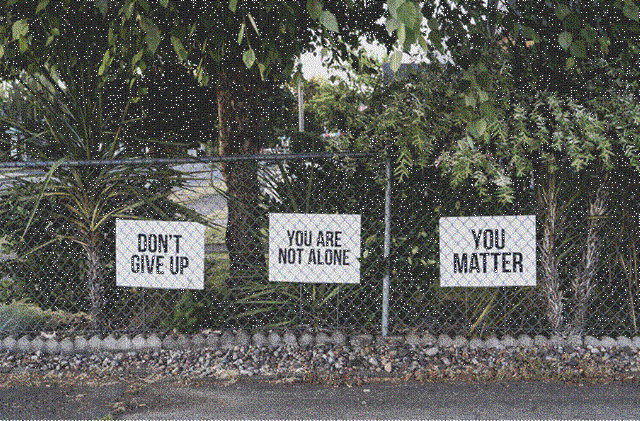Substance abuse and addiction plagues families and communities worldwide. In South Africa alone, at least six million people have serious drug use disorders according to the National Council on Alcoholism and Drug Dependence (SANCA). But through professional treatment guidance and dedicated recovery programs, the possibility for meaningful sobriety lives on.
Understanding Addiction:
Addiction manifests as dependence on a substance or behavior like gambling. The patient compulsively engages despite accumulating negative impacts on health, relationships, and livelihood. These dependencies activate the brain’s reward system abnormally, driving repetitive use that breeds even more intense cravings over time.
Towards the late stages of progressive addiction, users increase dosages and frequency of engaging in their addiction of choice. Simultaneously, they experience withdrawal symptoms like depression or flulike illness when not actively taking their substance. Eventually the singular focus on feeding addiction crowds out other aspects of life.
Why do Addicts Need Rehab Treatment Programs?
Without structured help severing bonds to the abused substance or activity, many addicts struggle to overcome addiction. The mandate becomes total abstinence and avoidance of triggers, requiring dramatic lifestyle changes. Rehab facilities offer round-the-clock supervision essential in detoxing safely and powering through challenges popping up in early sobriety.
In the protective environment staffed by addiction experts, patients access care including:
- Withdrawal monitoring – Safely progressing through detoxing phases
- Counseling – Unpacking root causes and developing coping strategies
- Education – Better understanding of addiction disease
- Therapies – Using creative outlets to express feelings
- Peer support – Bonding with those facing similar battles
With this intensive assistance unavailable elsewhere, rehab proves the surest path to getting sober. The fellowship and accountability help bytes build a toolkit of knowledge and new habits that last well beyond treatment.
Types of Addiction Treatment Targets:
No two addicts share identical stories or optimal routes to recovery. Rehab clinics offer essential support across numerous manifestations of addiction:
- Drug addictions – Both illegal substances like heroin and abused pharmaceutical medications require dedicated rehab to cease use.
- Alcoholism – Seeking treatment aids in stopping unhealthy drinking and averting complications.
- Behavioral issues – Gambling, gaming, sexual, and shopping addictions also warrant therapy addressing thought patterns perpetuating actions.
Regardless of differences amongst these primary addiction classifications, patients come to understand they are not alone. And in their pain lies common ground lighting the way forward.
Essential Components of Rehab Programs:
Customized treatment plans access every resource necessary to set patients up for success. While adjusting to meet individual circumstances, comprehensive rehab includes:
Medically-Supervised Detox
Before progressing through treatment, clearing toxins from the patient’s body is critical. Under a physician’s watch in either a hospital or a standalone detox facility, medications help ease the taxing withdrawal process. Relying on medical expertise prevents complications as systems stabilize.
Individual and Group Counseling
Exploring triggers, self-realizations, and tools for prevention with licensed therapists helps engrain positive behaviors. Group sessions bonding with fellow recovering addicts build camaraderie while confronting tendencies in a judgment-free space.
Family Therapy
Addiction strains relationships with loved ones begging for healing too. Family education mends bonds by working through pain points together to foster the needed home support system.
Aftercare Planning
Before patients complete formal rehab, counselors construct continuation care plans outlining necessary lifestyle changes post-discharge. This bridges the gap between treatment and successfully maintaining long-term recovery.
Alternative Therapies
Holistic offerings like art therapy, massage, meditation, and adventure outings teach healthy stress relief. These empower the discovery of new interests to occupy time positively.
Types of Rehab Environment Settings:
Rehab programs operate from various settings to cater to different recovery needs:
Hospital Rehab Facilities:
For intensive medical oversight required through initial detox, hospital-based inpatient units offer round-the-clock patient monitoring. Nurses station near patient rooms should any dangerous withdrawal symptoms arise requiring emergency attention. Hospitals also accommodate patients with extensive physical or mental health comorbidities complicating recovery.
Residential Rehab Centers:
Immersive care in homelike communal living environments empowers patients focusing singularly on recovery free of real-world distractions. Assignment to shared housing with peers reinforces a built-in support network. Much counseling and group programming happens on-site. Standard stays ranging 30 to 90 days depending on one’s unique treatment plan.
Outpatient Programs:
Those with less severe addictions, dutiful home support, or transportation access may rely on nonresidential programs. Intensive day treatment still digs into psychological root causes while allowing patients to go home at night. This better eases the eventual full-time transition back to regular life. But round-the-clock supervision proves lacking for extremely high-risk individuals.
Customizing Care to Every Demographic:
Rehab clinics increasingly recognize no singleton approach applies across the diverse addiction patient population. People battling dependencies come from all genders, orientations, ages, cultures, vocations lifestyles. Specialized programming now accounts for unique requirements inherent amongst these demographics.
- Gender-specific – Some prefer rehab environments exclusively centered on their gender’s care and communication styles.
- Profession-based – First responder or veteran tracks cater to shared work-induced trauma they continually withstand.
- Age-specific – Adolescent or senior programming aligns treatment to life-stage needs.
- Faith-based – Religious elements weave through the journey for patients who wish to strengthen their spirituality.
- Holistic care – Gentler plans to address the whole patient and integrate homeopathic options like acupuncture or equine therapy.
- Dual diagnosis – Those simultaneously facing addiction compounded by mental illness require coordinated treatment bridging both aspects.
The best rehab facilities employ diverse staff with niche expertise serving specific populations. Treatment morphs to each individual yet pulls from this patchwork of specialty knowledge as appropriate.
Supporting Lasting Sobriety Through Aftercare:
While rehab initiation marks meaningful progress, maintaining positive momentum long after discharge stands equally vital. Aftercare planning has already equipped patients with lifestyle restructuring blueprints and counselor contacts. Now the accountability shifts to addicts in reclaiming fulfilling, stable lives.
Common aftercare pillars providing continuity of care include:
- Outpatient counseling – Periodic appointment check-ins assess ongoing challenges to nip relapse triggers.
- Peer support groups – Fellowships like Alcoholics Anonymous or LifeRing Secular Recovery create understanding communities organizing activities resisting old social circles and patterns.
- Sober living homes – Halfway house transition programs supply stable lodging alongside peers striving to reintegrate into mainstream daily life.
- Online support – Digital tools like inspiration text messages or virtual recovery coach access offer round-the-clock assistance.
- Medication – Physicians may prescribe long-term medications balancing brain chemistry or blocking substance effects to support continued recovery.
While each addict travels a unique road, everyone must commit to the same daily mantra – just for today, I will remain substance-free. Layering aftercare foundations reinforces progress already made in rehabilitation.
Finding Quality Rehab in Johannesburg:
With so many local facilities marketing drug and alcohol recovery services, selecting optimal rehab goes beyond a Google search.
You can find a good rehab in Johannesburg by vetting the following indicators of reputable, ethical treatment centers:
- Licensed with the South African Central Drug Authority and Department of Social Development
- Accredited by recognized oversight bodies like The Joint Commission International
- Proven outcomes with high sobriety rates post-discharge
- Custom plans delivering the needed mix of detox, therapies, and specialty tracks
- Credentialed staff including addiction psychiatrists, physicians, psychologists, counselors, and social workers
- Up-to-date approaches backed by evidence like medication-assisted treatment and cognitive behavioral therapy
Conclusion:
With so many local facilities marketing drug and alcohol recovery services, selecting optimal rehab goes beyond a Google search. Vet for indicators of reputable, ethical treatment centers like proper licensing, accreditation, positive outcomes, and credentialed staff.
Quality indicators paint a picture of holistic care for the best chance at lasting sobriety. Facilities meeting benchmarks understand exactly how to guide patients from the grips of addiction into recovery’s hopeful dawn. With rigorous rehabilitation and steadfast aftercare, a brighter substance-free life stays firmly within reach – just ask any of recovery’s millions of success stories thriving today.










